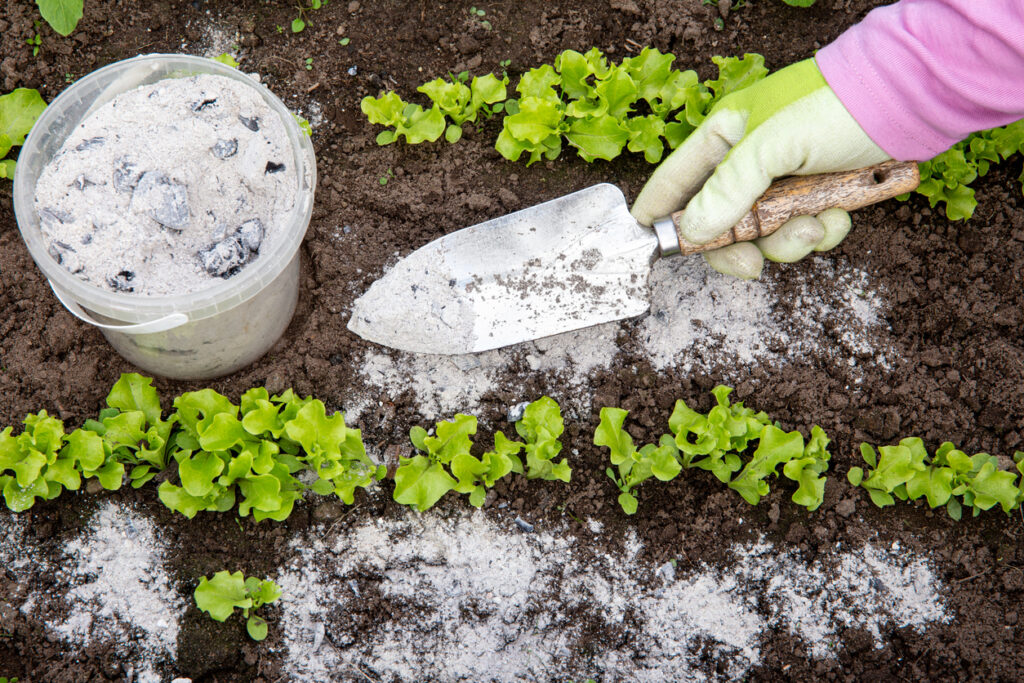As gardeners and farmers continuously seek ways to improve soil health and boost plant growth, the use of various organic and inorganic amendments has become a common practice. One such amendment that often sparks curiosity is wood ash. But are ashes good for soil? The answer isn’t straightforward, as it depends on the type of ash, the soil’s existing condition, and the plants being grown. Let’s delve into the specifics to understand the benefits and considerations of using ashes in your garden or farm.
Understanding Ash Composition
Wood ash is primarily composed of the inorganic minerals that were present in the wood before it was burned.
These minerals include calcium, potassium, magnesium, and trace amounts of other nutrients. The composition can vary depending on the type of wood burned; hardwoods like oak and maple tend to produce ash with higher nutrient content compared to softwoods like pine and fir.
Benefits of Using Ashes in Soil
pH Adjustment: One of the most significant benefits of wood ash is its ability to raise soil pH. Ash is alkaline and can help neutralize acidic soils, making them more hospitable for many plants that prefer a neutral to slightly alkaline environment. This is particularly useful for gardeners dealing with highly acidic soils.
Nutrient Supply: Wood ash contains essential nutrients like potassium, which is crucial for plant growth.
Potassium helps with water regulation, enzyme activation, and photosynthesis. Additionally, the calcium in ash can improve soil structure, making it easier for roots to grow and access nutrients.
Pest Deterrence: Some gardeners use wood ash as a natural pest deterrent. Sprinkling ash around plants can create a barrier that deters slugs and snails. The alkaline nature of ash can also discourage some soil-borne pests.
Considerations and Precautions
pH Imbalance: While raising soil pH can be beneficial for acidic soils, it can be detrimental to soils that are already neutral or alkaline. Over-application of wood ash can lead to an overly alkaline soil environment, which can inhibit nutrient uptake and harm plant health. It’s essential to test soil pH before applying ash and monitor it regularly.
Nutrient Imbalance: Although wood ash provides certain nutrients, it lacks others, such as nitrogen. Relying solely on ash as a soil amendment can lead to nutrient imbalances. It’s crucial to use ash in conjunction with other organic matter, like compost, to ensure a well-rounded nutrient profile.
Heavy Metals: Depending on the source of the wood, ash can contain trace amounts of heavy metals. While typically present in low concentrations, repeated applications can lead to accumulation in the soil, which can be harmful to plants and potentially enter the food chain. Using ash from untreated, natural wood minimizes this risk.
Application Rates: Moderation is key when applying wood ash to soil. A general guideline is to use no more than 20 pounds of ash per 1,000 square feet of garden space annually. This helps avoid over-application and potential negative effects on soil pH and nutrient balance.
Best Practices for Using Ashes in Soil
Test Soil pH: Before applying wood ash, conduct a soil pH test to determine if your soil can benefit from the pH-raising properties of ash.
Mix with Compost: Combine wood ash with compost to balance nutrient supply and improve soil structure.
Apply Evenly: Spread ash evenly over the soil surface and incorporate it into the top few inches of soil to avoid concentrated spots that could affect plant growth.
Monitor Soil Health: Regularly test soil pH and nutrient levels to ensure that the addition of wood ash is benefiting your soil and plants.
Ashes can be beneficial for soil when used correctly and in moderation. They offer a way to recycle organic material and provide essential nutrients and pH adjustment. However, understanding your soil’s current condition and the specific needs of your plants is crucial to avoid potential drawbacks. By following best practices and monitoring soil health, you can harness the benefits of wood ash to create a thriving garden or farm.
Alternative Uses for Wood Ash
If you find that wood ash may not be suitable for your soil, there are several alternative uses that can still benefit your garden and home:
Compost Additive: Adding small amounts of wood ash to your compost pile can help balance its pH and add valuable nutrients. Just be sure to mix it thoroughly to avoid clumping.
Pest Control: Beyond deterring slugs and snails, wood ash can also be used around the bases of plants to deter other soft-bodied pests. Its fine texture and alkaline properties can irritate pests, keeping them away from your plants.
Ice Melting: In winter, wood ash can be spread on icy walkways and driveways as an environmentally friendly alternative to salt. It provides traction and helps melt ice due to its dark color absorbing sunlight.
Cleaning Agent: Wood ash can be used as a mild abrasive cleaning agent for certain household tasks. Mixed with a bit of water, it can help clean tarnished silverware, glass, and even greasy surfaces.
Special Considerations for Different Plant Types
Acid-Loving Plants: Plants such as blueberries, azaleas, and rhododendrons prefer acidic soil. Using wood ash around these plants can be detrimental, raising the soil pH and inhibiting their growth.
Vegetable Gardens: Most vegetables benefit from a slightly acidic to neutral pH. Light applications of wood ash can improve soil conditions, particularly for potassium-loving plants like tomatoes and root vegetables.
Flower Beds: Many ornamental flowers thrive in neutral to slightly alkaline soil. Wood ash can enhance their growth by providing essential nutrients and improving soil structure.
Environmental Impact and Sustainability
Using wood ash as a soil amendment aligns with sustainable gardening practices by recycling waste products and reducing the need for chemical fertilizers. However, it’s important to source wood ash from untreated, natural wood to avoid contaminants that could harm soil health.
Wood ash can be a valuable addition to your soil management toolkit when used appropriately. Its ability to raise soil pH, provide essential nutrients, and deter pests makes it a versatile amendment. However, careful consideration of your soil’s existing conditions and the needs of your plants is crucial to avoid potential negative effects.
By integrating wood ash with other organic matter and regularly monitoring soil health, you can harness its benefits while maintaining a balanced and thriving garden environment. Whether you’re enhancing your compost, deterring pests, or improving soil structure, wood ash offers a natural and sustainable option for conscientious gardeners and farmers.






